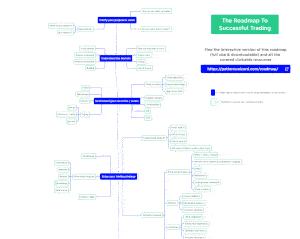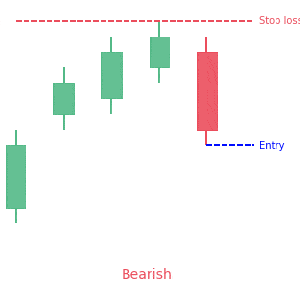The theory of the Locus rule is based on the idea of the locus of control. Julian B. Rottler proposed this theory. The theory revolves around motivation and the degree to which people believe that they have control over their life and everything else around them.
Well, the locus rule is our topic for today’s article because it is a very helpful theory when it comes to keeping ourselves motivated. What is so endearing about it? I must say, there’s a lot. Sometimes in our lives, we need something to distill our thoughts and beliefs. We need something to encourage us to be prepared, overcome challenges, escape our comfort zone and take action, invest in personal development, and take the necessary initiatives to change things around. This is what the Locus rule does. So, how does it helps us stay motivated? Let’s dive deep to find out.
History of the Locus rule
In 1998, Columbia University conducted a study to observe the degree to which human beings believe that they have control over their life. Claudia Mueller, a Columbia University professor, organized the study. She took a large group of fifth-grade students and gave them puzzles to solve. These puzzles in the first level were extremely tough and challenging. All the students were appreciated and told that their score was very good regardless of how they performed.
In the next level, they separated students into two groups. Researchers told one group that they performed well because they worked hard. On the other, they told the other group that they performed well because they were smart. Now, they gave students to solve three more types of puzzles, easy, difficult, and extremely challenging. What they found is really interesting. The group of students that was told that they performed well because they were smart and gifted spent less time on challenging puzzles. They engaged themselves with easy ones. On the flip side, the other group of students spent most of their time on difficult and challenging puzzles.
The study illustrated that the group of students who were told that they performed well because they were smart were less motivated. Contrarily, the other group of students was motivated enough to face challenging puzzles. They also said that they enjoyed the experiment whereas the less motivated group said that this wasn’t that much fun for them.
This was the study that introduced a new concept called the locus of control. What is it and what is its type? Let’s see this in the next section.
The Locus of control
The Locus of control concept refers to the degree to which people believe to have control over their lives. The following are two types of Locus of control.
1. External locus of control
When people believe that external factors like luck, places, people, environment, etc. decide their success, it is an external Locus of control. As you know, these external factors are not in our control, and those who blame these factors are actually less motivated people. They don’t take responsibility and fail to achieve their goals. In the study discussed earlier, a group of students who were told that their smartness was instrumental in their good performance believed in external Locus of control. They were less motivated and therefore, never enjoyed the experiment.
2. Internal Locus of control
Conversely, when people believe that external factors like luck, places, people, environment, etc. don’t decide their success, it is an internal Locus of control. They don’t blame external factors and are highly motivated people. They take responsibility with both hands and work with dedication. That’s why they always achieve their goals. In the study discussed earlier, a group of students who were told that their hard work was instrumental in their good performance believed in the internal Locus of control. They were highly motivated and therefore, enjoyed the experiment.
The locus rule to stay motivated in trading
Motivation is a drive and energy that make us do something with willingness, dedication, and hard work. It compels us to take action and change things around even by facing hardships. Therefore, motivation is the key to making us perform at the highest level. The locus rule is important as far as motivation is concerned because it helps us in keeping ourselves motivated. You can apply this rule in trading and keep yourself motivated to achieve your trading goals.
As we have already discussed, you need to be a trader who believes in internal Locus of control. You need to have confidence and belief in your abilities. Taking responsibility for your actions in the trading endeavor is the key to successful trading. That’s how you realize your mistakes and try to turn things around instead of blaming external factors such as markets.
Conversely, traders who blame external factors like markets, brokers, hedge funds, etc. never achieve their goals. They focus on things not under their control instead of focusing on their own mistakes. Let me ask a question here. Can you develop a good trading plan without realizing shortfalls in your trading plan? Or, can you follow your trading plan without developing self-control? No, you cannot. Therefore, keep yourself motivated, learn, work hard, and correct your mistakes to achieve success in trading.
The wrap-up
If you are trading to become a successful trader, you don’t have to be pushed. Rather, your motivation must pull you. Always believe in the internal Locus of control and take responsibility for things happening in your trading endeavor. This is what keeps you moving and motivated. It is you who has complete control over your actions. Only you can improve your trading plan. It is you who can identify shortcomings in your trading strategy and tweak it to make it better. Moreover, you also need to believe that you can do it and that you will. Always remember that people with an internal locus of control taste success. Whereas, people with a belief in an external Locus of control never achieve their goals because they blame others instead of improving themselves. That’s how the Locus rule can guide you in staying motivated in trading and achieving the success you seek.
 Good Trading requires the Best Charting Tool!
Good Trading requires the Best Charting Tool!

 We loved Marwood Research’s course “Candlestick Analysis For Professional Traders“. Do you want to follow a great video course and deep dive into 26 candlestick patterns (and compare their success rates)? Then make sure to check this course!
We loved Marwood Research’s course “Candlestick Analysis For Professional Traders“. Do you want to follow a great video course and deep dive into 26 candlestick patterns (and compare their success rates)? Then make sure to check this course!